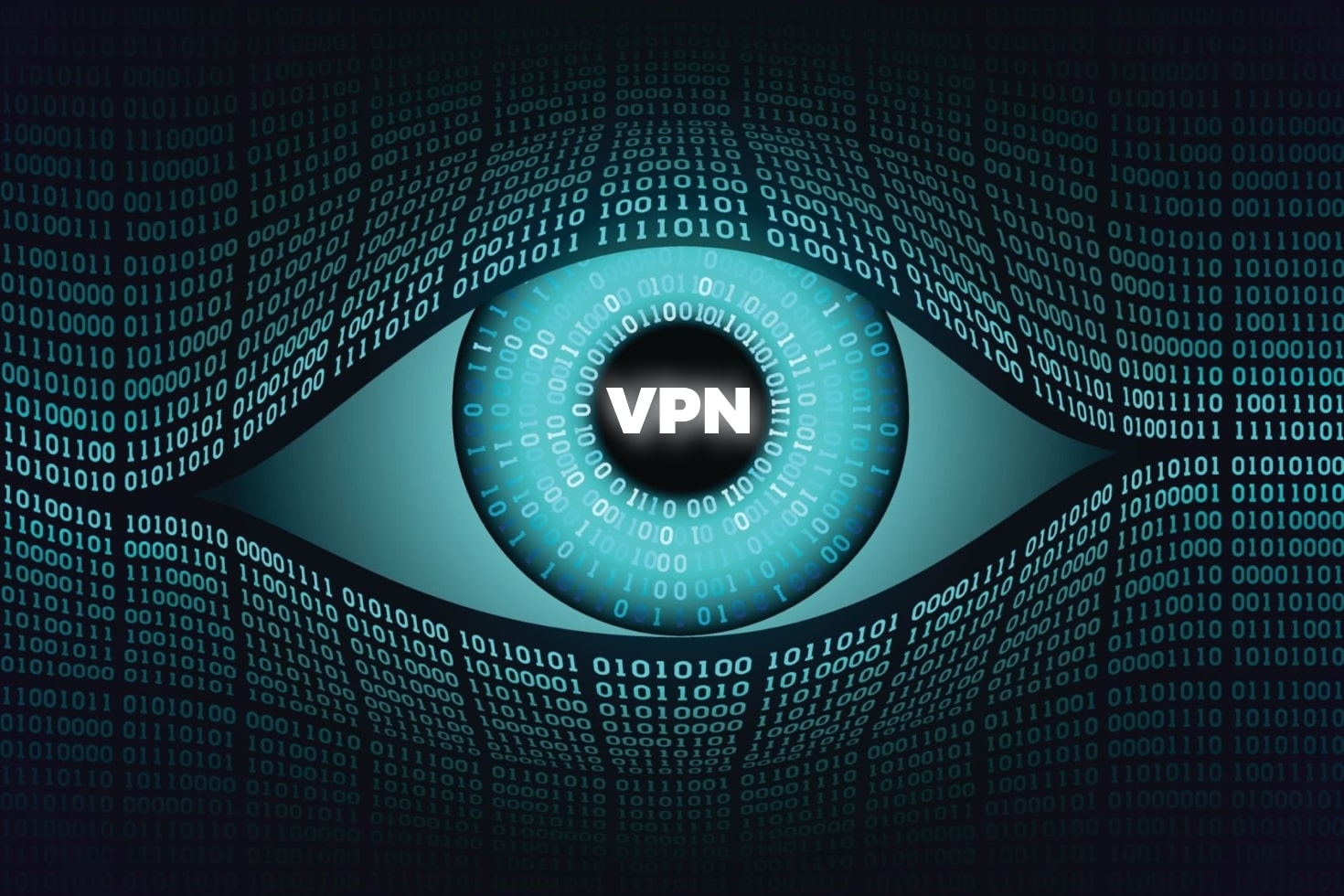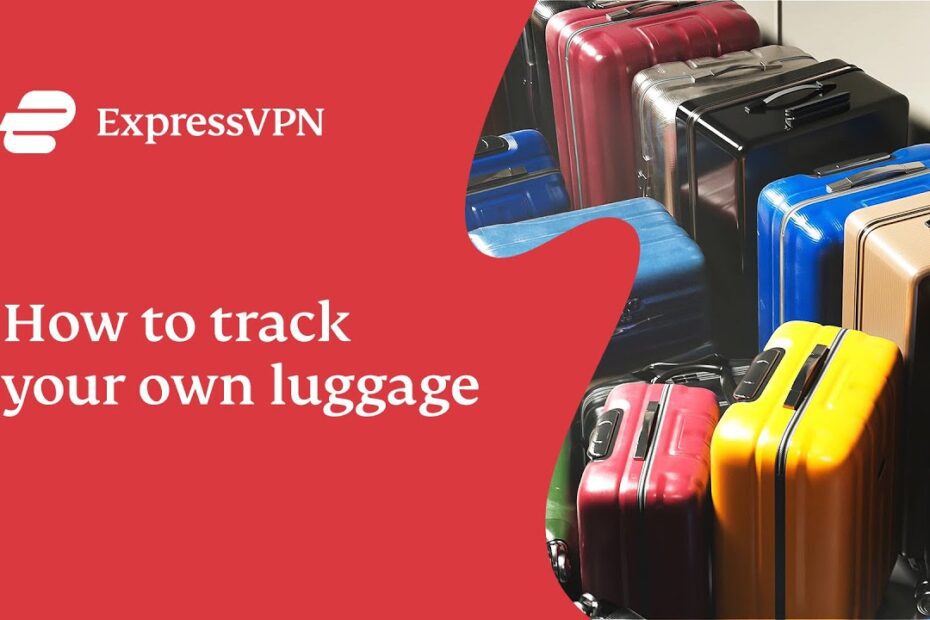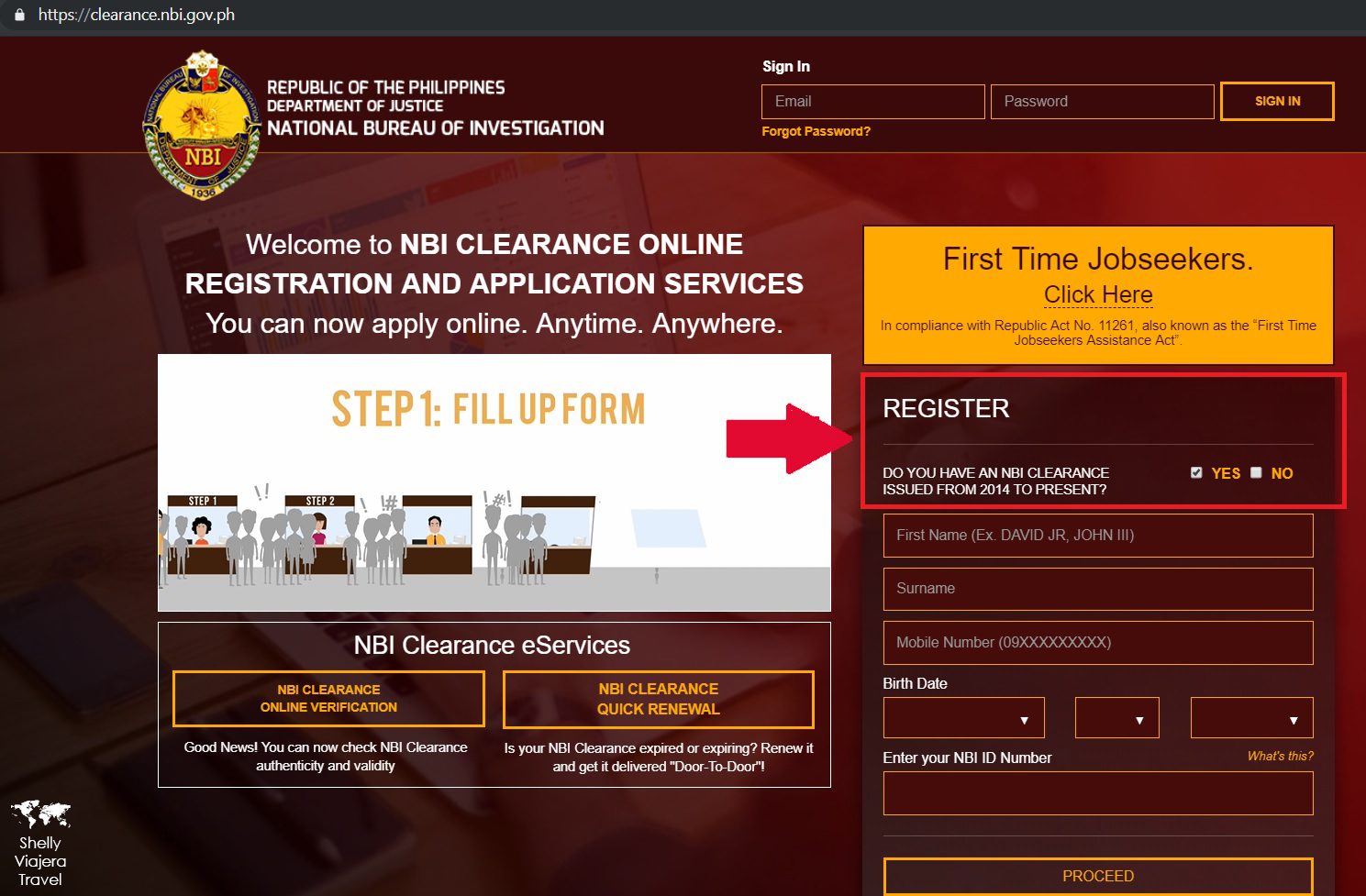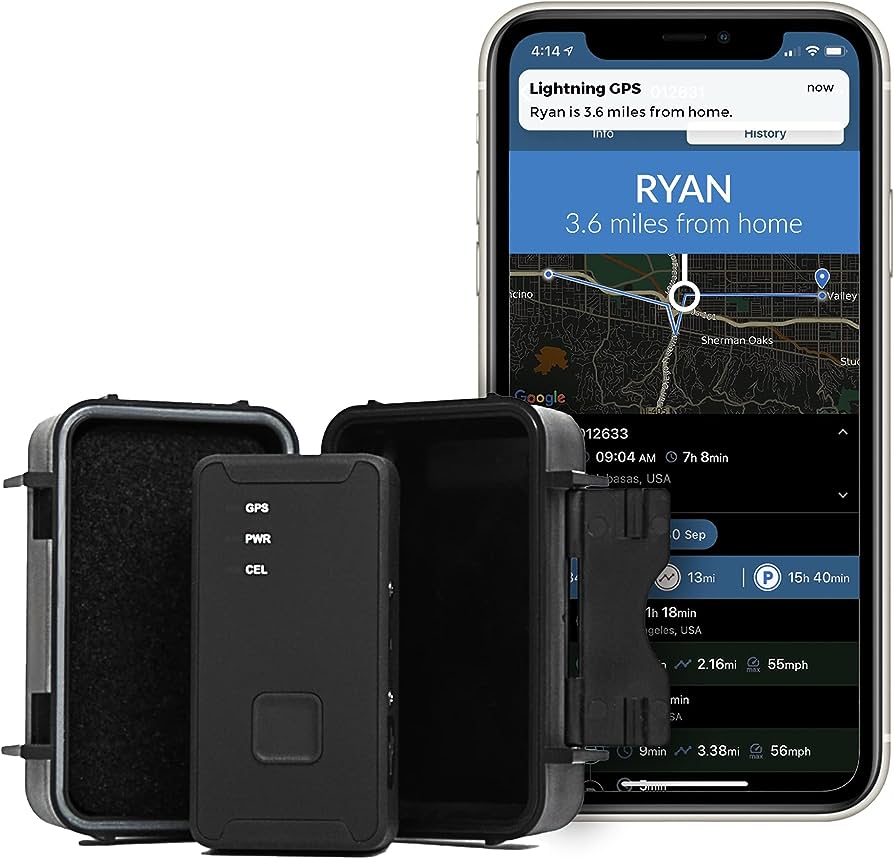To track a VPN, use the built-in logging features of VPN software or analyze network traffic using network monitoring tools. Virtual Private Networks (VPNs) are essential tools for online security and privacy, but sometimes you may need to track them for various reasons.
Whether you want to ensure that your employees are accessing the network securely or investigate suspicious activities, tracking VPN connections can be useful. This article will guide you on how to track VPN usage effectively. By utilizing the logging features of VPN software or analyzing network traffic using network monitoring tools, you can gain insights into VPN connections and maintain a secure network environment.
Stay tuned for practical tips and step-by-step instructions on efficiently tracking VPNs.
Introduction To Vpn Tracking
Discover how to effectively track VPN usage with this introductory guide. Learn about the methods and tools available for monitoring VPN connections and user activities, ensuring optimal security and privacy.
Virtual Private Networks (VPNs) have gained popularity in recent years for their ability to provide secure and private internet connections. However, it’s crucial to understand that while VPNs offer enhanced privacy and security, they can still be tracked in certain situations.
In this section, we will delve into the concept of VPN tracking, exploring what it entails, why people engage in it, and the common reasons for such tracking.
What Is Vpn Tracking?
- VPN tracking refers to the process of monitoring or investigating the activities and usage of VPNs by individuals or organizations. It involves gathering information about the VPN connections and the data transmitted through them.
- VPN tracking can target various aspects, such as the IP addresses used, the protocols employed by the VPN, and the traffic patterns associated with the VPN usage.
Why Do People Track Vpns?
- Tracking VPNs serves different purposes, depending on the entities involved. It can include governmental surveillance, corporate monitoring, or even individual curiosity.
- Understanding VPN tracking helps stakeholders identify potential security vulnerabilities within their VPN networks and protect against potential threats.
Common Reasons For Vpn Tracking:
- Government Surveillance: Governments may track VPNs to monitor and gather intelligence on potential threats, criminal activities, or to enforce online censorship and monitoring of citizens.
- Corporate Monitoring: Employers may track VPN usage to ensure compliance with company policies, prevent data breaches, and protect sensitive information from unauthorized access.
- Digital Rights Management (DRM): Content providers and copyright holders may track VPNs to enforce regional restrictions and control access to copyrighted material, preserving licensing agreements.
- Cybersecurity and Anti-Fraud: Security researchers and law enforcement agencies may track VPNs to investigate online crimes, such as cyber attacks, hacking attempts, identity theft, or illegal activities.
- Network Optimization: Internet Service Providers (ISPs) and network administrators may track VPNs to optimize network performance, manage bandwidth, and detect malicious or suspicious activities.
While VPNs are designed to enhance privacy and security, it’s essential to recognize that they are not entirely immune to tracking. Understanding the concept of VPN tracking can empower users to make informed decisions and take precautionary measures to protect their online activities and sensitive data.
Methods Of Tracking Vpns
Tracking VPNs can be done through various methods, including analyzing network traffic patterns, monitoring IP addresses, and examining DNS queries. These techniques enable users to identify and track VPN usage, contributing to better network security and management.
The increasing popularity of VPNs has brought about concerns regarding privacy and security. While VPNs are designed to protect your online activities, it is important to understand that they are not entirely foolproof. In this section, we will explore various methods through which VPN usage can be tracked, including IP address tracking, DNS leaks, and web tracking through cookies and fingerprints.
Ip Address Tracking
Understanding Ip Addresses
- IP addresses are unique numerical identifiers assigned to every device connected to the internet.
- They play a crucial role in data transmission, allowing devices to send and receive information.
Tracing Vpn Usage Through Ip Addresses
- VPNs conceal your original IP address and assign you a new one from their server.
- However, sophisticated tracking techniques can still trace VPN usage by analyzing IP addresses.
Dns Leaks And Their Implications
What Are Dns Leaks?
- DNS stands for Domain Name System, which translates website names into IP addresses.
- DNS leaks occur when your DNS queries are transmitted outside the VPN tunnel, exposing your online activities.
How Vpn Tracking Can Occur Through Dns Leaks
- When a VPN is not configured properly or experiences connectivity issues, it can lead to DNS leaks.
- This enables third parties to intercept and track your online activities, bypassing the protection offered by VPNs.
Web Tracking Through Cookies And Fingerprints
Explaining Cookies And Fingerprints
- Cookies are small text files that websites store on your device to track your browsing behavior and remember certain preferences.
- Fingerprints refer to unique identifiers generated based on your device’s configuration and browser settings.
How Vpn Users Can Be Tracked Through Cookies And Fingerprints
- When you connect to a website while using a VPN, cookies may be used to track your activities, enabling website owners or advertisers to build a profile of your browsing behavior.
- Similarly, fingerprints can be used to link your online activities across multiple sessions, allowing entities to identify and track you.
Now that we have explored the different methods of tracking VPNs, it is crucial to be aware of these potential risks. By understanding how tracking can occur, you can take necessary precautions to safeguard your online privacy and ensure a more secure VPN experience.
Implications Of Vpn Tracking
Find out the potential consequences of VPN tracking and learn how to effectively track VPN usage. Stay informed about the implications of VPN tracking and safeguard your online privacy and security.
Privacy Concerns For Vpn Users:
- VPN tracking has significant implications for the privacy of VPN users. Here are some key points to consider:
- VPN tracking refers to the practice of monitoring and recording the online activities of individuals using virtual private networks (VPNs) to protect their privacy and security.
- The data collected through VPN tracking can be used to identify users, track their browsing habits, and potentially compromise their anonymity.
- VPN users may have a reasonable expectation of privacy and may choose to use VPNs to prevent their online activities from being monitored or collected by ISPs, governments, or advertisers.
- VPN tracking can undermine the very purpose users use VPNs, as it compromises their privacy and exposes their personal information.
- It is essential for VPN users to be aware of these privacy concerns and take necessary precautions to protect their online activities.
How Vpn Tracking Affects Online Privacy:
- VPN tracking has notable implications for online privacy. Here’s how it can impact users:
- VPN tracking can expose users’ IP addresses, online activities, and personal data to third parties. This compromises the privacy and security that VPN users seek.
- When VPN traffic is tracked, it becomes easier for entities to correlate users’ online activities, potentially revealing their interests, browsing history, and even sensitive information.
- Server logs and browsing data collected through VPN tracking can be accessible to governments, ISPs, or even malicious hackers, leading to potential misuse or targeted surveillance.
- VPN tracking can also breach the privacy of individuals working in sensitive professions such as journalists, activists, or whistleblowers who rely on VPNs to protect their anonymity.
Risks Of Personal Data Exposure:
- VPN tracking poses risks of personal data exposure. Here are some key points to keep in mind:
- VPN tracking can expose users’ personally identifiable information (PII), including names, addresses, login credentials, and financial details.
- The collected data can be sold to third parties or used for targeted advertising, compromising user privacy.
- ISPs may track and sell user data even if they claim not to keep logs. VPN tracking may reveal this information, making user data vulnerable to abuse.
- Personal data exposure resulting from VPN tracking can lead to identity theft, fraud, or other forms of cybercrime.
Legal :
- VPN tracking has legal implications that should be considered:
- The legality of VPN tracking varies between countries. Some jurisdictions may regulate or completely ban VPNs, while others may allow their usage but impose restrictions or require legal compliance.
- In certain regions, governments or law enforcement agencies might require VPN service providers to retain logs or grant access to user data for investigative purposes.
- VPN service providers must comply with relevant data protection laws and privacy regulations depending on the jurisdiction in which they operate.
Laws And Regulations Related To Vpn Usage And Tracking:
- Laws and regulations related to VPN usage and tracking differ worldwide. Here’s a brief overview:
- Some countries, such as China and Russia, have implemented strict regulations on VPN usage, making it challenging to access certain online content or maintain internet privacy.
- Other nations, like the United States and many European countries, generally allow VPN usage but may have specific laws in place regarding data retention, privacy, or lawful interception.
- Users should familiarize themselves with the laws of their respective countries and the regions where VPN servers are located to understand legal boundaries and potential risks associated with VPN usage.
Consequences Of Illegal Vpn Usage And Tracking:
- Illegal VPN usage and tracking can have severe consequences, as highlighted below:
- Individuals engaging in illegal activities while using VPNs can still be subject to law enforcement actions. VPN usage does not grant absolute immunity from legal repercussions.
- In some jurisdictions, penalties for illegal VPN usage can range from fines to imprisonment, depending on the specific regulations in place.
- Unauthorized VPN tracking or the deliberate exploitation of user data can lead to legal action against the responsible parties, including hefty fines or criminal charges.
- It is important to adhere to the laws and regulations governing VPN usage to avoid legal complications and protect one’s privacy.
Remember to conduct thorough research into specific regulations and consult legal professionals to understand the legal framework concerning VPNs in your jurisdiction.
Choosing The Right Vpn
Choosing the right VPN can be a challenge, especially when it comes to tracking VPN usage. However, by following the guidelines on privacy, speed, and security, you can find a VPN service that meets your needs effectively.
Factors To Consider When Selecting A Vpn:
Choosing the right VPN can be a daunting task with a plethora of options available in the market. To ensure you make the best decision for your online security and privacy, it’s essential to consider several factors. Here are some key points to keep in mind when selecting a VPN:
- Privacy policy and data logging practices:
- Check the VPN’s privacy policy to understand how they collect, use, and store your data.
- Look for a VPN that has a strict no-logs policy, meaning they don’t store any personally identifiable information or online activities.
- Verify if the VPN is located in a privacy-friendly jurisdiction to ensure your data is protected.
- Encryption protocols and security features:
- Ensure the VPN uses strong encryption protocols such as AES-256, which provides robust security for your online communications.
- Look for features like a kill switch, which automatically disconnects your internet connection if the VPN connection drops, preventing any potential data leaks.
- Consider VPNs that offer additional security features such as split tunneling, DNS leak protection, and multi-hop connections.
- Popular VPNs for avoiding tracking:
- Research popular VPN providers known for their ability to protect users’ privacy and avoid tracking.
- Read reviews and user experiences to gauge the efficacy of the VPN in providing anonymity and preventing tracking.
Overview Of Top Vpn Providers:
To assist you in narrowing down your options, here’s an overview of some top-rated VPN providers in terms of privacy, security, and performance:
- ExpressVPN:
- Offers an extensive network of servers located in 94 countries worldwide, ensuring fast and reliable connections.
- Utilizes military-grade encryption and allows for secure and anonymous browsing.
- Strict no-logs policy to protect user privacy.
- NordVPN:
- Known for its strong encryption and advanced security features, such as Onion over VPN and Double VPN.
- Provides a vast network of servers in 59 countries.
- Offers a user-friendly interface with excellent customer support.
- CyberGhost:
- Boasts an impressive network of over 7,000 servers across 90 countries.
- Prioritizes user privacy and employs a strict no-logs policy.
- Easy to use, making it suitable for beginners.
Features And Benefits Of Recommended Vpns:
When it comes to selecting a VPN, it’s crucial to understand the features and benefits offered by each provider. Here are some notable features of the recommended VPNs:
- ExpressVPN:
- High-speed connections with unlimited bandwidth for seamless streaming and downloading.
- Compatibility with various devices and operating systems.
- 24/7 customer support for any technical assistance.
- NordVPN:
- Dedicated IP addresses for improved security and access to region-locked content.
- CyberSec feature to block ads, malware, and suspicious websites.
- Multi-platform support, allowing simultaneous connections on up to six devices.
- CyberGhost:
- Optimized servers for streaming and torrenting activities.
- One-click setup and user-friendly apps for hassle-free usage.
- Robust encryption and advanced privacy features.
By considering these factors and researching reputable VPN providers, you can choose a VPN that suits your privacy and security needs, allowing you to effectively track and protect your online activities.
Mitigating Ip Address Tracking
Discover effective strategies to mitigate IP address tracking and protect your online privacy. Learn how to track VPN and maintain anonymity while browsing the internet.
In today’s digital landscape, protecting your online privacy is of utmost importance. One effective way to enhance your privacy is by mitigating IP address tracking. By understanding various IP masking and hiding techniques, the differences between dynamic and static IP addresses, the role of proxy servers in masking IPs, and the importance of VPNs with strong IP address protection, you can better safeguard your online activities.
Let’s explore these concepts further:
Understanding Ip Masking And Hiding Techniques
To prevent IP address tracking, individuals and businesses employ various techniques to mask or hide their IP addresses. These techniques include:
- Proxy servers: Acting as intermediaries between users and the Internet, proxy servers hide an individual’s IP address by relaying their online requests through their own IP addresses.
- Virtual Private Networks (VPNs): By encrypting your internet traffic and routing it through remote servers, VPNs offer enhanced privacy and security. They assign you a different IP address, effectively masking your original one.
- Tor network: The Tor network, also known as The Onion Router, enables users to browse the internet anonymously. It encrypts your data and routes it through a series of volunteer-operated servers, making it difficult to trace your IP address.
Dynamic Vs. Static Ip Addresses
IP addresses can be classified as dynamic or static:
- Dynamic IP addresses: Internet Service Providers (ISPs) assign dynamic IP addresses to users. These addresses change each time you connect to the internet, making it challenging to track your online activities.
- Static IP addresses: In contrast, static IP addresses remain constant and are typically used by businesses or individuals who require remote access or hosting services. Static IPs are relatively easier to track since they don’t change frequently.
Proxy Servers And Their Role In Masking Ip Addresses
Proxy servers act as intermediaries between users and the internet, offering anonymity by masking your IP address. Here’s how they work:
- Forward Proxy: When you connect to a website, your request goes through the forward proxy server, which then relays the response to you, hiding your IP address from the destination server.
- Reverse Proxy: On the other hand, reverse proxy servers sit between clients (users) and servers, providing an additional layer of security. In this setup, the reverse proxy server masks the IP addresses of the target servers, preventing direct access by external users.
Using Vpns With Strong Ip Address Protection
VPNs are one of the most reliable tools to mitigate IP address tracking. It’s crucial to choose VPN services that offer robust IP address protection features, such as:
- Encryption: A VPN should use strong encryption protocols, like AES-256, to secure your internet traffic and protect your IP address from potential snoopers.
- No-logs policy: Opt for VPN providers that have strict no-logs policies, ensuring that your online activities and IP address are not recorded, thus minimizing the risk of tracking.
- Kill Switch: A Kill Switch feature automatically disconnects your internet connection if the VPN connection drops, preventing your IP address from being exposed inadvertently.
- DNS leak protection: VPNs that incorporate DNS leak protection ensure that your IP address isn’t exposed through DNS queries, further safeguarding your online anonymity.
Benefits Of Secure Vpns In Preventing Ip Address Tracking
By implementing secure VPNs with advanced IP address protection features, you can enjoy several benefits:
- Enhanced privacy: VPNs offer an extra layer of privacy by masking your IP address, preventing others from tracking your online activities.
- Bypassing geo-restrictions: VPNs allow you to access region-locked content by routing your connection through servers in different locations, making it appear as if you’re browsing from another country.
- Secured data transmission: VPNs encrypt your internet traffic, making it virtually impossible for hackers or eavesdroppers to intercept and decipher your data.
- Safe public Wi-Fi usage: When connected to a public Wi-Fi network, using a VPN keeps your data secure by encrypting it and protecting your IP address from potential threats.
Mitigating IP address tracking is crucial for preserving your online privacy. By understanding IP masking and hiding techniques, the differences between dynamic and static IP addresses, the role of proxy servers, and the significance of VPNs with advanced IP address protection features, you can proactively safeguard your online activities and enjoy a secure and private online experience.
Preventing Dns Leaks And Web Tracking
Learn how to prevent DNS leaks and web tracking while tracking VPN. Discover effective strategies to maintain online privacy and protect your sensitive data.
Configuring Vpn Settings To Avoid Dns Leaks
To ensure that your VPN is effectively preventing DNS leaks, it is essential to configure the VPN settings properly. Here are a few key steps to follow:
- Choose a reliable VPN provider: Selecting a reputable VPN provider can significantly minimize the chances of DNS leaks. Research different options and choose one that offers secure DNS servers and robust privacy features.
- Enable the VPN’s built-in DNS leak protection feature: Many VPNs have a built-in feature specifically designed to prevent DNS leaks. Make sure to enable this feature in your VPN settings to enhance your privacy and security.
- Configure manual DNS settings: Some VPNs require you to manually configure DNS settings on your device to prevent leaks. This involves specifying the VPN provider’s DNS servers instead of using your default DNS server. Follow your VPN’s instructions on how to accomplish this.
- Disable IPv6 connectivity: IPv6 can bypass your VPN, potentially leading to DNS leaks. It’s crucial to disable IPv6 on your device to ensure all traffic goes through your VPN’s secure connection. You can usually disable IPv6 in your network settings.
Dns Leak Prevention Methods
Preventing DNS leaks involves employing various methods to protect your privacy and ensure that your VPN is functioning correctly. Here are some effective techniques:
- Use a trusted VPN with built-in DNS leak protection: Opt for a VPN service that prioritizes privacy and implements robust methods to prevent DNS leaks. Look for features like DNS leak protection and IPv6 leak protection in the VPN’s offering.
- Perform regular DNS leak tests: Consistently testing your connection for DNS leaks is essential. Several websites and tools are available for this purpose. Performing regular tests can help identify any potential issues and take appropriate action to fix them promptly.
- Disable WebRTC: Web Real-Time Communication (WebRTC) can inadvertently expose your true IP address, bypassing the VPN. To prevent this, consider disabling WebRTC in your browser settings or use browser extensions that disable WebRTC leaks.
- Configure firewall rules: Setting up specific firewall rules on your device can help prevent DNS leaks. These rules can be designed to block all outbound DNS requests that don’t go through your VPN tunnel.
Testing For Dns Leaks And Resolving Issues
Regularly testing your VPN connection for DNS leaks allows you to identify and address any potential issues. Follow these steps to conduct a DNS leak test and resolve any problems that arise:
- Choose a reliable DNS leak testing tool: Many online tools exist to test your VPN connection for DNS leaks. Select a reputable tool that accurately detects leaks and provides clear results.
- Disconnect from the VPN: Before conducting a DNS leak test, disconnect from your VPN to establish a baseline connection without the VPN’s protection.
- Run the DNS leak test: Once disconnected from the VPN, run the DNS leak test tool and monitor the results. If any DNS requests are detected outside of your VPN, it indicates a potential leak.
- Troubleshoot DNS leak issues: If a DNS leak is detected, follow the troubleshooting steps provided by your VPN service. This may involve changing VPN servers, adjusting settings, or seeking support from the VPN provider.
Blocking Web Tracking Techniques
Preventing web tracking is crucial to maintaining your online privacy. Here are some effective methods to block various web tracking techniques:
- Install tracking protection browser extensions: Utilize browser extensions such as Privacy Badger, uBlock Origin, or Ghostery to block tracking cookies, scripts, and other elements that facilitate web tracking.
- Enable “Do Not Track” (DNT) in your browser: Enabling the DNT feature in your browser sends a signal to websites, requesting them not to track your online activities. However, bear in mind that not all websites honor this request.
- Configure browser privacy settings: Explore your browser’s settings and configure privacy options to restrict websites from tracking your browsing habits. This may include disabling third-party cookies, blocking location tracking, and clearing cookies regularly.
- Use private browsing mode: Opt for the private or incognito mode offered by most browsers. This mode prevents the storage of browsing history, cookies, and temporary files, limiting the ability of websites to track your activities.
Browser Extensions And Add-Ons For Privacy Protection
Numerous browser extensions and add-ons can enhance your privacy protection online. Consider the following options:
- HTTPS Everywhere: This extension forces websites to use encrypted HTTPS connections whenever possible, reducing the risk of data interception and improving overall security.
- Privacy Badger: Developed by the Electronic Frontier Foundation (EFF), this extension automatically blocks tracking cookies and scripts, providing a more private browsing experience.
- UBlock Origin: Offering comprehensive ad-blocking capabilities, uBlock Origin not only removes annoying advertisements but also blocks trackers, thereby enhancing your privacy and page load times.
- Disconnect: Disconnect actively blocks tracking requests while also providing additional features like visualizing and controlling which websites are tracking you.
- NoScript Security Suite: This security-focused extension allows you to block all scripts on websites by default, giving you more control over what executes on your browser and preventing potential tracking attempts.
Clearing Cookies And Managing Fingerprints
Clearing cookies and managing fingerprints are essential steps in maintaining your online privacy. Here are some recommendations:
- Regularly clear cookies: Delete cookies stored on your browser regularly to remove any tracking information that may accumulate over time. Most browsers offer options to clear cookies within their settings.
- Utilize private browsing mode: As mentioned earlier, private browsing modes prevent cookies from being stored during your browsing session. Consider using this mode whenever possible, particularly when engaging in sensitive online activities.
- Manage browser fingerprinting: Browser fingerprinting refers to the unique characteristics of your browser that can be used to track your online activities. Use browsers or extensions that help manage fingerprinting by randomizing or spoofing the data sent to websites.
Remember, implementing these practices can significantly enhance your online privacy and minimize the risks associated with DNS leaks and web tracking. Stay vigilant and regularly review your VPN and browser settings to ensure maximum privacy protection.
The Importance Of Protecting Your Vpn Usage
Protecting your VPN usage is of utmost importance to ensure online privacy and security. By tracking VPN usage, you can safeguard your personal information and prevent unauthorized access to your internet activities. Stay protected and anonymous by implementing effective VPN usage tracking practices.
With the increasing number of online threats and privacy concerns, using a VPN has become essential for many internet users. However, it’s important to remember that VPNs are not foolproof and can still be vulnerable to tracking and monitoring. In this section, we will discuss the risks and implications of VPN tracking, as well as the steps you can take to safeguard your online privacy.
Recap Of The Risks And Implications Of Vpn Tracking:
- Online surveillance: ISPs, government agencies, and even cybercriminals can track your VPN usage, monitoring your online activities and potentially compromising your privacy.
- Data leaks: In some cases, VPN providers may log and store users’ data, leaving it susceptible to hacks or accidental leaks.
- Legal implications: Depending on your location, using a VPN for certain activities may violate local laws and regulations, which can lead to legal consequences.
Steps To Take To Safeguard Your Online Privacy:
- Research and choose a reliable VPN provider: Look for providers with strict no-logs policies, strong encryption protocols, and a good reputation for privacy and security.
- Use multi-factor authentication: Adding an extra layer of security to your VPN login can help prevent unauthorized access to your account and protect your personal information.
- Regularly update your VPN software: Keeping your VPN software up to date ensures that you have the latest security patches and features, reducing the risk of vulnerabilities.
- Enable kill switch: A kill switch is a feature that automatically disconnects your internet connection if the VPN connection drops, preventing any data leakage.
- Disable WebRTC: WebRTC can expose your real IP address, even if you’re connected to a VPN. Disable this feature in your browser settings to further protect your anonymity.
The Role Of Vpns In Maintaining Anonymity And Security Online:
- Encryption: VPNs use encryption protocols to secure your internet connection, preventing unauthorized access to your data.
- IP masking: By connecting to a VPN server, your IP address is replaced with the server’s IP address, making it difficult for anyone to trace your online activities back to you.
- Unblocking restricted content: VPNs can help you bypass geo-blocks and access region-restricted content, providing you with more online freedom.
- Wi-Fi protection: When using public Wi-Fi, VPNs encrypt your data, protecting it from potential hackers and snoops.
By taking the necessary precautions and understanding the risks involved, you can enjoy the benefits of VPNs while ensuring your online privacy and security. Remember to choose a reliable VPN provider, keep your software updated, and prioritize the protection of your personal information.
Stay safe online!

Credit: www.hacker9.com
Frequently Asked Questions On How To Track Vpn
Can A Vpn Be Traced?
Yes, a VPN can be traced.
Can The Fbi Track A Vpn?
Yes, the FBI can track a VPN.
How Can I Track Vpn Activity On My Network?
Tracking VPN activity on your network can be challenging, but there are ways to monitor it. You can use network monitoring tools, analyze VPN logs, or employ intrusion detection systems to detect any suspicious activity. However, it’s worth noting that some VPNs are designed to be untraceable, so tracking their activity may be difficult.
Can Vpns Be Traced By The Government?
While VPNs provide privacy and security, they can still be traced by the government. Law enforcement agencies can request user information from VPN providers, and if the provider keeps logs, it may be possible to trace back the VPN activity.
However, reputable VPN providers often have strict no-logs policies, making it harder for authorities to track users.
Conclusion
Tracking VPNs can be a complex task, but with the right tools and knowledge, it becomes a manageable process. By employing various techniques such as analyzing network traffic, monitoring IP addresses, and using VPN detection services, you can effectively track VPN usage.
It is important to understand the legal aspects and respect the privacy rights of individuals while carrying out these activities. Constantly staying updated with the latest VPN technologies and actively working towards improving your tracking methods will allow you to keep up with the evolving VPN landscape.
Remember to approach VPN tracking with the goal of enhancing security and ensuring the proper use of these networks, rather than solely focusing on tracking individual users. With persistence and a comprehensive approach, you can effectively track VPNs and maintain a secure online environment for all users.
Tracking VPNs requires a combination of technical expertise, legal understanding, and a commitment to privacy. By following the guidelines outlined in this blog post, you will be well-equipped to tackle the challenges of VPN tracking successfully.
- What Is the 11 Hour Limit: A Comprehensive Guide - June 7, 2024
- What Happens if You Drive on a Suspended License in Virginia - June 7, 2024
- Wilcox Justice Court Overview: Online Services & Legal Proceedings - June 6, 2024




